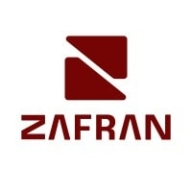


Fortra Alert Logic MDR and Microsoft Defender for Cloud are competitors in the cloud security market. Microsoft Defender for Cloud is seen as more advantageous due to its extensive feature set and strong integration with Azure services.
Features: Fortra Alert Logic MDR offers seamless threat detection and response, advanced analytics, and reporting tools. Microsoft Defender for Cloud provides comprehensive security coverage, extensive integration with Azure, and automation features that are highly valued.
Room for Improvement: Fortra Alert Logic MDR could enhance integration capabilities, improve automation processes, and offer more detailed regulatory compliance features. Microsoft Defender for Cloud may benefit from improved interface user-friendliness, increased transparency in security alerts, and more focused customer support strategies.
Ease of Deployment and Customer Service: Fortra Alert Logic MDR is appreciated for its straightforward deployment and proactive support. Microsoft Defender for Cloud offers seamless integration with Azure, which provides benefits for those already using Azure, backed by Microsoft’s strong technical support.
Pricing and ROI: Fortra Alert Logic MDR is known for its competitive pricing and rapid ROI due to effective threat mitigation. Although Microsoft Defender for Cloud has higher initial implementation costs, its extensive features and integrations contribute to long-term value and deeper ROI benefits.



Zafran Security integrates with existing security tools to identify and mitigate vulnerabilities effectively, proving that most critical vulnerabilities are not exploitable, optimizing threat management.
Zafran Security introduces an innovative operating model for managing security threats and vulnerabilities. By leveraging the threat exposure management platform, it pinpoints and prioritizes exploitable vulnerabilities, reducing risk through immediate remediation. This platform enhances your hybrid cloud security by normalizing vulnerability signals and integrating specific IT context data, such as CVE runtime presence and internet asset reachability, into its analysis. No longer reliant on patch windows, Zafran Security allows you to manage risks actively.
What are the key features of Zafran Security?
What benefits can users expect from Zafran Security?
In industries where security is paramount, such as finance and healthcare, Zafran Security provides invaluable protection by ensuring that only exploitable vulnerabilities are addressed. It allows entities to maintain robust security measures while allocating resources efficiently, fitting seamlessly into existing security strategies.
Alert Logic specializes in log management, security configuration, SIEM, SaaS monitoring, network protection, and MDR services. It is suitable for sectors such as utilities, financial services, and government.
Alert Logic offers extensive log management and proactive security by centralizing logs, providing detailed notifications, and detecting intrusions. With global threat visibility and SOCs in the US and Europe, it speeds up the threat detection process in seconds. Advanced technologies, like AI and ML, improve its MDR services and differentiate legitimate user behavior from threats.
What are Alert Logic's key features?Alert Logic proves beneficial for various industries, with e-commerce applications utilizing it for robust log management and security measures. Utility sector companies leverage its network protection and threat detection capabilities, while financial services organizations appreciate its MDR services. Government agencies rely on its comprehensive infrastructure monitoring and SOC expertise for enhanced security.
Microsoft Defender for Cloud is a comprehensive security solution that provides advanced threat protection for cloud workloads. It offers real-time visibility into the security posture of cloud environments, enabling organizations to quickly identify and respond to potential threats. With its advanced machine learning capabilities, Microsoft Defender for Cloud can detect and block sophisticated attacks, including zero-day exploits and fileless malware.
The solution also provides automated remediation capabilities, allowing security teams to quickly and easily respond to security incidents. With Microsoft Defender for Cloud, organizations can ensure the security and compliance of their cloud workloads, while reducing the burden on their security teams.
We monitor all Vulnerability Management reviews to prevent fraudulent reviews and keep review quality high. We do not post reviews by company employees or direct competitors. We validate each review for authenticity via cross-reference with LinkedIn, and personal follow-up with the reviewer when necessary.